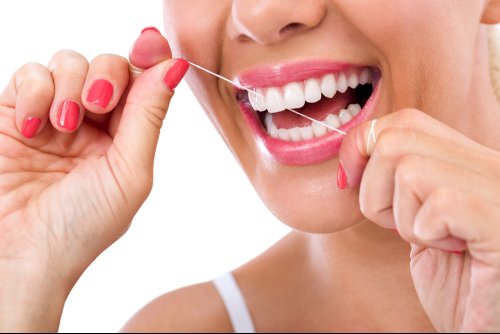The Importance of Dental Hygiene

Good oral hygiene is vital for a clean mouth that looks, feels and smells healthy. Good oral health is also important to your overall wellbeing, as the health of your teeth and gums can be signs of other problems going on in your body.
Maintaining good oral hygiene is one of the most important things you can do for your body. Healthy teeth and gums not only enable you to look and feel good, they also make it possible to eat and speak properly.
Signs of Healthy Teeth and Gums
You want to aim for the following 3 signs of good oral health.
- Teeth that are clean and free of debris
- Gums that are pink, and do not hurt or bleed when you brush or floss
- No problems with bad breath
If your gums hurt or bleed while brushing or flossing, or you find you have persistent bad breath, you’ll need to see your dentist, as these are signs of an unhealthy mouth.
The most common cause of bad breath is poor oral hygiene. Bacteria that build up on a person’s teeth, tongue and gums can cause plaque (the soft, white deposit that forms on the teeth’s surface), gum disease and tooth decay .
Forgetting to brush and floss your teeth regularly means that any food trapped between your teeth will be broken down by the bacteria, causing bad breath.
How is Good Oral Hygiene Practiced?
Your dentist or hygienist can provide you with helpful tips for good oral hygiene techniques, and can help point out areas of your mouth that may require extra attention during brushing and flossing.
In between regular visits to the dentist, there are simple steps that each of us can take to greatly decrease the risk of developing tooth decay, gum disease and other dental problems. These include:
- Brushing thoroughly twice a day and flossing daily
- Eating a balanced diet and limiting snacks between meals
- Using dental products that contain fluoride, including toothpaste
- Rinsing with a fluoride mouth rinse if your dentist tells you to
- Making sure that your children under 12 drink fluoridated water or take a fluoride supplement if they live in a non-fluoridated area
Daily preventive care will help stop problems before they develop and is much less painful, expensive, and worrisome than treating conditions that have been allowed to progress.
Orthodontic Treatment Calls for Extra Care
If you or your child have braces or any kind of orthodontic plate or retainer, good dental hygiene is vital. The risk of developing gum disease and tooth decay can increase during orthodontic treatment.
In addition to this, if you’ve been in braces for any length of time, you’ll want to prevent any long-term issues, such as cavities under the braces or discoloration around where the braces are bonded to the teeth. You’ll also want to preserve that excited feeling when your fresh new smile was revealed after removing the braces!
Keep your teeth and gums healthy during orthodontic treatment with daily brushing and flossing, rinsing after meals, and regular check-ups and cleaning with your orthodontist every 6 months. Having regular dental check-ups will ensure that any oral hygiene problems are picked up and treated early. Your orthodontist can advise on how often you need a check-up and also help you address the issue.
Call Tony Weir Orthodontics on (07) 3054 6763 or contact us online to book an appointment with an expert orthodontist. They will be able to provide you with professional advice on practicing dental hygiene, particularly during your braces treatment.